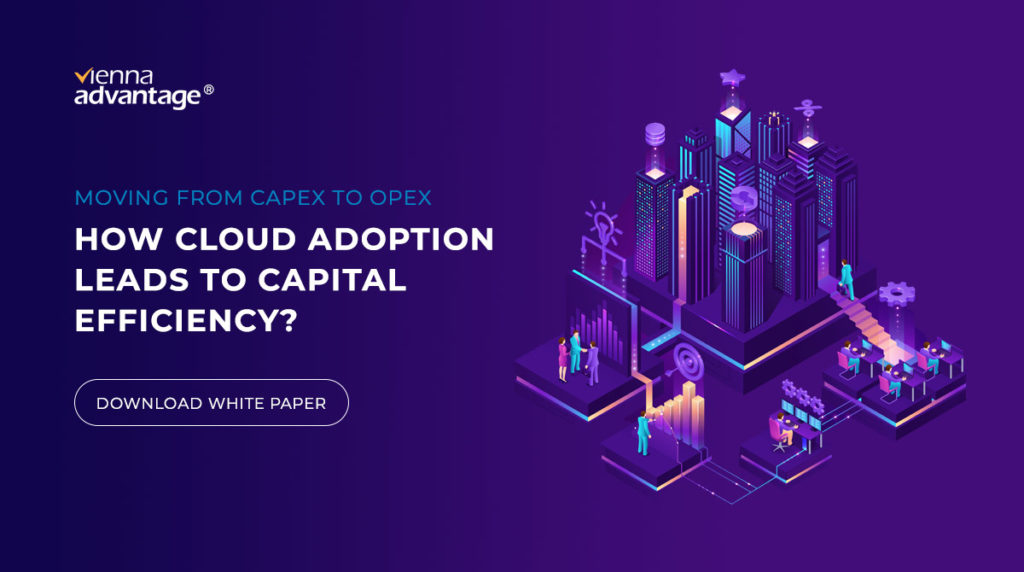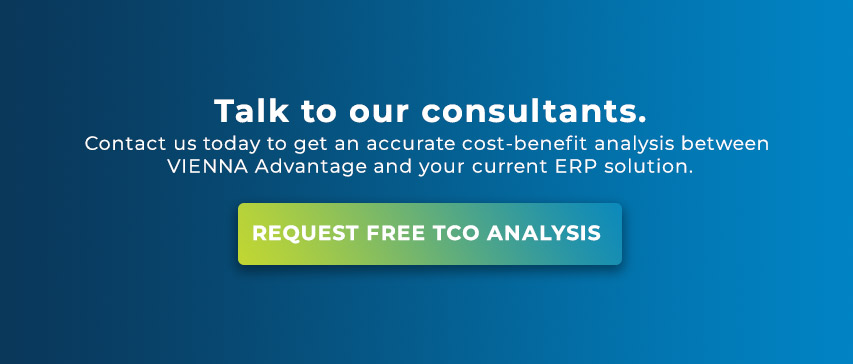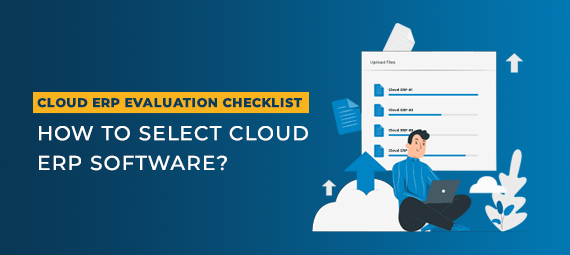The market today is flooded with cloud ERP solutions with each vendor claiming to have a superior product for you than the other. While their claim to superiority may be true in some respect, the questions you need to ask yourself during the cloud ERP evaluation process are: Is cloud ERP the next step for your business? Are the shortlisted cloud ERP solutions a good fit for my organization’? How do you choose one from the other? Which is better suited for you? How do you decide?
Investing in a cloud ERP solution is a significant decision. It involves extensive deliberation with regards to the fit, how the solution will aid in the productivity of the organization; what features and functions the solution has that will help with day to day business functions; whether the solution in question supports usability, customizability and maintainability? What is the lifetime of the solution and how does the cost incurred weigh against the features and functions available? And lastly, how does it minimize risk and ensure longevity?
Cloud ERP evaluation checklist
Today we will evaluate in detail what questions you should be asking yourself while trying to choose a suitable cloud ERP solution for your organization. Here is our comprehensive cloud ERP evaluation checklist to help you decide on an ERP solution:
#1 Industry-Specific ERP vs Generic ERP
While the generic cloud ERP covers all the basic functionalities of a business, like human resources management, sales management, accounting and financial management, etc, it is not adequately equipped and tailored to the business processes of the industry you operate in. Having been tailored to fit into any industry, the generic ERP requires customization to achieve a fit to your specific business model. An industry specific ERP on the other hand is specially designed keeping in mind the nuances of specific industries and their respective business processes. These provide a completely integrated system which usually requires relatively fewer customization, if at all. Therefore an industry specific ERP can be expected to deliver a more suitable fit for your business. At VIENNA Advantage, our solutions are tailored to scale with requirements of your industry and address industry specific challenges prevalent today.
#2 Total Cost of Ownership and cloud ERP evaluation
A crucial factor in your decision making process should revolve around the cost of ownership. While some products may have a lower initial cost, the total long-term cost can turn out to be prohibitive. It is therefore imperative to build a business case on the true Total Cost of Ownership (TCO) before making an investment of this scale. Performing this analysis is important to evaluate the short and the long-term return on investment (ROI) that will be the basis for your business case. It is crucial, therefore, that your analysis reflects the true cost of long-term ownership of the cloud ERP solution that accurately accounts for the initial implementation cost and the recurring software as a service subscription.

#3 Customizability and Configurability
Notwithstanding the fact that the ERP solution is cloud based, you should be able to make customizations and configurations as necessary, so that your organization’s specific processes can be implemented in the cloud ERP. This is opposite of a multi-tenant ERP approach that a few vendors increasingly seem to be adopting. Adding customizations to such a setup is very difficult and makes the maintainability of the solution very challenging. Lastly, larger organizations, by virtue of their sheer size, will be able to add on or remove features that are more suitable to their businesses. Keeping this in mind, it is always advisable to opt for a cloud-based ERP that is flexible and does not restrict client customizations.
#4 Cloud Infrastructure Resources Allocation
An important aspect to consider during the evaluation process is whether the ERP vendor provides each of their customers with a separate allocation of cloud infrastructure. This way, there will be no compromise on performance of the ERP application and other customers will not be encroaching on your infrastructure resources and vice-versa. To avoid this ‘noisy neighbor’ effect, make sure you choose a vendor who practices allocation of separate cloud infrastructure for each customer in their environment. This factor has a disproportionate effect on peak load performance – at a time that you need the application the most, the performance will probably be the worst. To avoid such a situation, it is crucial for you to understand performance SLAs and ask for benchmarking metrics as a part of your cloud ERP evaluation process.
#5 Data Residency and Compliance
Every business needs to comply with the laws and regulations of the jurisdictions they operate in as well as to certain international frameworks and accepted standards of operations and reporting. As a business that operates in one or several countries, it is crucial for your cloud ERP solution to comply with data residency regulations of the countries you operate in. It is also in the best interest of your business for your cloud ERP provider to ensure that historical data is available for posterity for any statutory or legal obligations that the business may have.
#6 Support and Services Network
Whether you are a company with global outreach or a company operating regionally, your cloud ERP solution must come with worldwide support and network of partners. ERP support is critical and you need to make sure that the support is available as close to your time zone as possible, and in your local language, if applicable. A vendor that does not provide a powerful and robust local support will put your business operations at significant risk. On the other hand, an ERP vendor that provides such a support network will ensure minimal downtime and lowers your business continuity risk.
Carrying out due diligence for prospective ERP vendors in such a complex compliance landscape can be quite overwhelming, especially when it comes to going through reams of fine print documents. It is a necessary step in your ERP journey that needs to be dealt with comprehensively and will safeguard your investments and increase the likelihood of a successful ERP implementation in your organization.
Act While There’s Still Time
Today, digital disruption is affecting practically every business sector, and hence, visionary executives are leaning towards transforming their companies to stay relevant in their markets and to enjoy a competitive advantage. To most companies, this involves the modernization of their core ERP platform and shifting it to the cloud for enhanced management of costs, better agility, and quicker access to innovations. This is an ideal time to shift to VIENNA Advantage Cloud ERP solution.




